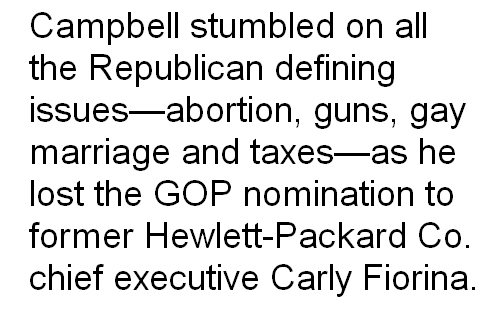There is an interesting post today on the blog of Ambrose Evans-Pritchard at the Telegraph. Why is it that we get better coverage of the US economy and government from British newspapers than our own ? Don’t bother to answer as that question has an obvious answer (aside from economic illiteracy of US writers). A junior member of the Federal Reserve Board economics staff, Kartik Athreya, senior economist for the Richmond Fed, has written a ridiculous letter complaining that economics blogs should be suppressed because the bloggers do not have economics PhDs.
“Writers who have not taken a year of PhD coursework in a decent economics department (and passed their PhD qualifying exams), cannot meaningfully advance the discussion on economic policy.”
I especially like how he invites ridicule by emphasizing the quality of his own education at U of Iowa.
“The response of the untrained to the crisis has been startling. The real issue is that there is an extremely low likelihood that the speculations of the untrained, on a topic almost pathologically riddled by dynamic considerations and feedback effects, will offer anything new. Moreover, there is a substantial likelihood that it will instead offer something incoherent or misleading.”
Yes, we can’t have incoherent of misleading statements flying about the internet. I would include the statements of Nobel Prize winning economist Pail Krugman who wants to spend much, much more but who am I to question such an expert ?
“Economics is hard. Really hard. You just won’t believe how vastly hugely mind-boggingly hard it is. I mean you may think doing the Sunday Times crossword is difficult, but that’s just peanuts to economics. And because it is so hard, people shouldn’t blithely go shooting their mouths off about it, and pretending like it’s so easy. In fact, we would all be better off if we just ignored these clowns.”
I won’t argue with that. Nuclear physics is hard, too. Even Medicine can be difficult at times. Mr Evans-Pritchard (not doctor), however, has some strong opinions that, I suspect, do not agree with Dr Athreya’s.
The current generation of economists have led the world into a catastrophic cul de sac. And if they think we are safely on the road to recovery, they still fail to understand what they did.
Central banks were the ultimate authors of the credit crisis since it is they who set the price of credit too low, throwing the whole incentive structure of the capitalist system out of kilter, and more or less forcing banks to chase yield and engage in destructive behaviour.
They ran ever-lower real interests with each cycle, allowed asset bubbles to run unchecked (Ben Bernanke was the cheerleader of that particular folly), blamed Anglo-Saxon over-consumption on excess Asian savings (half true, but still the silliest cop-out of all time), and believed in the neanderthal doctrine of “inflation targeting”. Have they all forgotten Keynes’s cautionary words on the “tyranny of the general price level” in the early 1930s? Yes they have.
They allowed the M3 money supply to surge at double-digit rates (16pc in the US and 11pc in euroland), and are now allowing it to collapse (minus 5.5pc in the US over the last year). Have they all forgotten the Friedman-Schwartz lessons on the quantity theory of money? Yes, they have. Have they forgotten Irving Fisher’s “Debt Deflation causes of Great Depressions”? Yes, most of them have. And of course, they completely failed to see the 2007-2009 crisis coming, or to respond to it fast enough when it occurred.
The present policies of this administration are based on the recommendations of credentialed idiots like this letter writer and they scare the hell out of me.
The error was for the Fed to buy the bonds from the banking system (and we all hate the banks, don’t we) rather than going straight to the non-bank private sector. How about purchasing a herd of Texas Longhorn cattle? That would do it. The inevitable result of this is a collapse of money velocity as banks allow their useless reserves to swell.
Nicole Gelinas, in her book, After the Fall blames credit rating agencies and lack of regulation but she also writes that there was a brief period when an auction of non-performing assets was begun and could have set prices for the Mortgage backed bonds but this was short circuited by the Fed paying the banks full price in TARP. That ended the auction since who would sell for less than par when Uncle Sam was there paying retail ? Then, it turned out no one could decided what the retail price was since it was obvious the bonds were worth a quarter or less of the face value. The auction approach might have worked but it was aborted by government intervention, once again !
The 20th Century was a horrible litany of absurd experiments and atrocities committed by intellectuals, or by elite groupings that claimed a higher knowledge. Simple folk usually have enough common sense to avoid the worst errors. Sometimes they need to take very stern action to stop intellectuals leading us to ruin.
The root error of the modern academy is to pretend (and perhaps believe, which is even less forgiveable), that economics is a science and answers to Newtonian laws.
Here is the take-home lesson, as they say in medical school; Economics is NOT a science.
Economics should never be treated as a science. Its claims are not falsifiable, which is why economists can disagree so violently among themselves: a rarer spectacle in science, where disputes are usually resolved one way or another by hard data.
It is a branch of anthropology and psychology, a moral discipline if you like. Anybody who loses sight of this is a public nuisance, starting with Dr Athreya.
It sounds like economics shares some problems with climate science.

